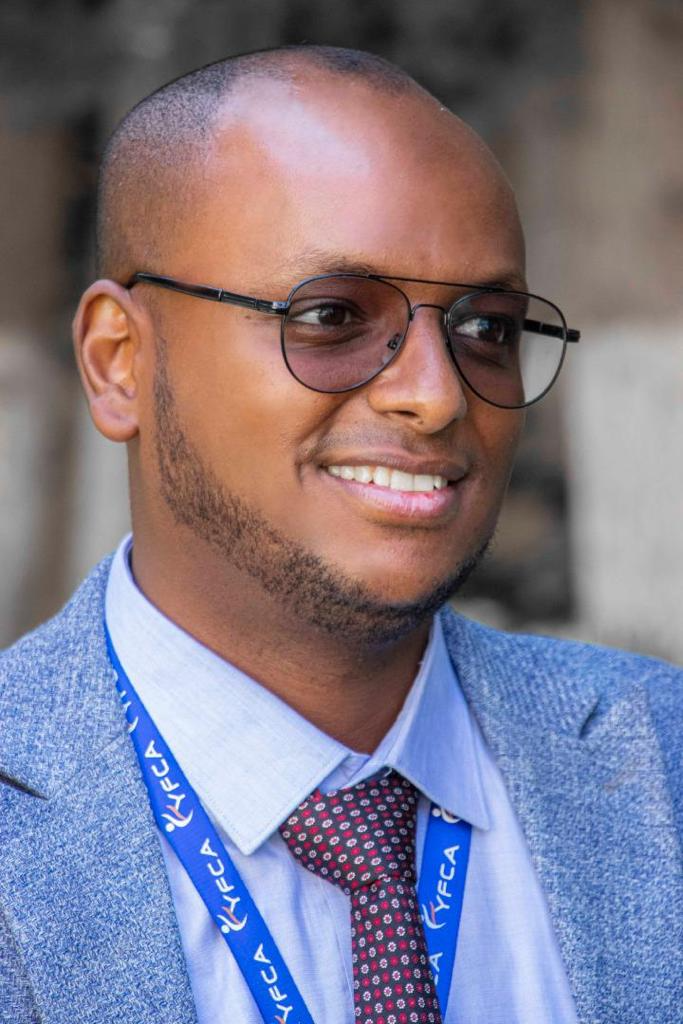Waleed Al-Hajj is a current student on HCRI’s online MSc in Global Health. He is also an awardee of the Elys Roberts Scholarship, which supports individuals pursuing a career in Global Health, from or working in low or middle income countries. Sophie Riordan, HCRI Communications Assistant, interviewed Waleed about his career and the course.
Could you tell us some information about you, your journey so far and what you want to achieve?
My name is Waleed Adam Al-Hajj, a Sudanese physician currently pursuing a postgraduate degree in Global Health. Regarding my professional career, I’m working in the emergency response in Yemen, which is classified as one of the biggest humanitarian crises in the world. The key focus and driver of my work is promoting the inclusion of people with disabilities and displaced communities in national health systems and emergency response.
Upon completing my postgraduate studies alongside emergency program management in Yemen, I intend to apply my expertise and experience to pursue senior leadership roles within humanitarian organisations committed to protecting the rights and well-being of marginalised groups during times of crisis.
What inspired you to study this course?
The COVID-19 pandemic in 2020, which substantially challenged the health systems globally regardless of the economic status and financial capacities of the world nations. I’ve learned that the most effective strategy to mitigate the impact of such global health issues is to consider coordinated actions to enhance the preparedness, preventive, and response efforts globally, with a special focus on low and middle-income countries. Also, climate-change-related health hazards are another potential public health issue that is currently affecting all countries and requires collaborative efforts with all the concerned stakeholders beyond the health systems to proactively act on the relevant social determinants of health. In light of this, the content of this course offered a diverse package of learning materials, tools, and resources to expand my knowledge and strengthen my skills in topics related to the worldwide improvement of health, reduction of disparities, and protection against these global threats.
What have you enjoyed most about the course?
I’ve truly enjoyed the practical and applicable nature of the course content and how it could be directly implemented in my work field as a humanitarian aid worker in Yemen. I truly appreciated the quality of the learning content, which is tailored to the operational context of my work and had markedly contributed to leveraging my knowledge of key global health topics, challenges, and strategies.
What have been your favourite modules?
Two modules from the Global Health program have been particularly impactful for my work in Yemen.
The first, ‘Management & Leadership in Health & Humanitarianism’ (76000), has directly strengthened my leadership and management skills as a Health & Nutrition Program Manager. Through relevant topics like project management, coordination/communications, and technological innovation, I have been able to apply new approaches that boost the efficiency and accountability of the health program deliverables
The second, ‘Community Approaches to Health’ (71000), equipped me with tools and advocacy strategies to promote community-based models. Here in Yemen, such programs have unique potential to overcome economic, physical and social barriers that marginalise vulnerable groups from care. By addressing these determinants of inequity, community health can make significant contributions to Universal Health Coverage targets under the Sustainable Development Goals.
Thank you Waleed!
For more on HCRI courses and scholarships, please visit the HCRI website

